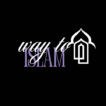
What Islam is ? islam is a monotheistic faith that is focused at the teachings of the Prophet Muhammad and the Quran. Muslims are individuals who adhere to Islam.
Key elements of Islam
Shahadah
The first pillar of Islam, that is the career of faith. Muslims recite the creed “There isn’t any God but God and Muhammad is the Messenger of God”.
Salah
The second pillar of Islam, which is a shape of prayer this is finished 5 times a day. Muslims stand, bow, prostrate, and sit down whilst reciting the prayer in Arabic.
Hajj
The pilgrimage to Mecca,that’s a mandatory ritual for Muslims who’re physically and financially in a position.
Zakat
An Islamic finance time period that refers back to the obligation to donate a component of one’s wealth each year.
Sawm
The act of fasting, that’s mainly determined at some stage in the month of Ramadan. Muslims abstain from food and drinks from dawn to sunset.
Shahadah- The core if what Islam is
The Shahadah is the relevant Islamic announcement of religion, mentioning “There is not any god but Allah, and Muhammad is His Messenger,” signifying a Muslim’s perception inside the oneness of God and acceptance of Prophet Muhammad as His messenger; it’s far considered the first pillar of Islam and is essential for converting to the faith.
Key factors approximately Shahadah:
Meaning: “The Testimony” in Arabic
Phrase: “La ilaha sick-Allah, Muhammadur Rasulullah”
Significance: Represents the center perception of Islam, signifying a Muslim’s commitment to the faith
Conversion method: Reciting the Shahadah with honest notion is considered the act of turning into a Muslim
Salah-A Key Practice in What Islam Is
“Salah” (or “Salat”) is the Islamic exercise of ritual prayer completed five instances a day. It is one of the Five Pillars of Islam and is an critical act of worship for Muslims. The 5 daily prayers are:
- Fajr – Before sunrise
- Dhuhr – Midday
three. Asr – Afternoon - Maghrib – Just after sunset
- Isha – Night
Each prayer includes precise actions (including standing, bowing, and prostrating) and recitations from the Quran. Salah is a way for Muslims to hook up with God (Allah), are looking for steerage, and specific gratitude. It requires bodily purity (wudu) and is done dealing with the Kaaba in Mecca.
Sawm
Sawm (Fasting in Islam) is one of the Five Pillars of Islam, relating to the exercise of fasting from dawn to sundown all through the Islamic month of Ramadan. It entails abstaining from food, drink, smoking, and marital family members during daylight hours.
Obligatory for Muslims (except kids, the aged, pregnant/nursing women, travelers, and those who’re unwell).
Time Frame: From Fajr (pre-dawn) to Maghrib (sunset).
Purpose: Spiritual purification, strength of will, and closeness to Allah.
Suhoor & Iftar: The pre-dawn meal (Suhoor) and breaking of rapid at sundown (Iftar) are critical elements of fasting.
-Laylat al-Qadr: The Night of Power, considered the holiest night time, takes place in the closing ten days of Ramadan.
Ends with Eid al-Fitr: A foremost Islamic festival marking the of entirety of Ramadan.
Fasting outside of Ramadan is likewise endorsed, inclusive of on Mondays & Thursdays and on unique days like Ashura and Arafah.
Zakat
Islam’s Pillar of Charity, zakat (Pilaf) Zakat is considered one of the five pillars of Islam and serves as both an essential component of worship and a means of social justice. A mandatory charity mandates that Muslims donate a portion of their wealth (2.5% of savings) to help those in need. The Purpose of Zakat. The act of zakat is both a spiritual and social responsibility. Purifying wealth, empathy, and bridging the gap between rich and poor are all part of it. Zakat is a form of financial assistance that Muslims acknowledge as ‘trust from God’ to share their wealth with those they are poor. Who Receives Zakat? The distribution of Zakat in Islam mandates that it be distributed among eight categories, including the needy, poor, debt-ridden, and disadvantaged travellers. Its aim is to promote positive change in people and communities, resulting in an economic equilibrium.’ The Benefits of Zakat. This process fosters spiritual growth and reinforces the importance of Muslims demonstrating their responsibility towards humanity. Economic justice reduces poverty while promoting a more equitable distribution of wealth. Social solidarity is a tool that encourages kindness, generosity, and community support.
Hajj
Hajj is the annual Islamic pilgrimage to Mecca, Saudi Arabia, and is one of the Five Pillars of Islam. It is an compulsory non secular responsibility for all Muslims who are physically and financially capable of mission the journey at least as soon as of their lifetime. Hajj takes area at some point of the Islamic month of Dhul-Hijjah, specially from the eighth to the twelfth of the month.
Key Rituals of Hajj:
- Ihram – Entering a state of spiritual purity through wearing special white clothes.
- Tawaf – Circling the Kaaba seven instances inside the Grand Mosque.
- Sa’i: Walking seven times between the hills of Safa and Marwah.
Four. Wuquf at Arafat: Standing in prayer at the obvious of Arafat, the most critical ritual.
Five. Muzdalifah: – Collecting pebbles for the subsequent ritual. - Ramy al-Jamarat: Stoning the pillars representing Satan at Mina.
- Animal Sacrifice – Symbolizing Prophet Ibrahim’s willingness to sacrifice his son.
Eight. Final Tawaf – Another circumambulation of the Kaaba earlier than departing.
Hajj is a profound non secular journey that symbolizes harmony, equality, and submission to Allah.this is what Islam is
